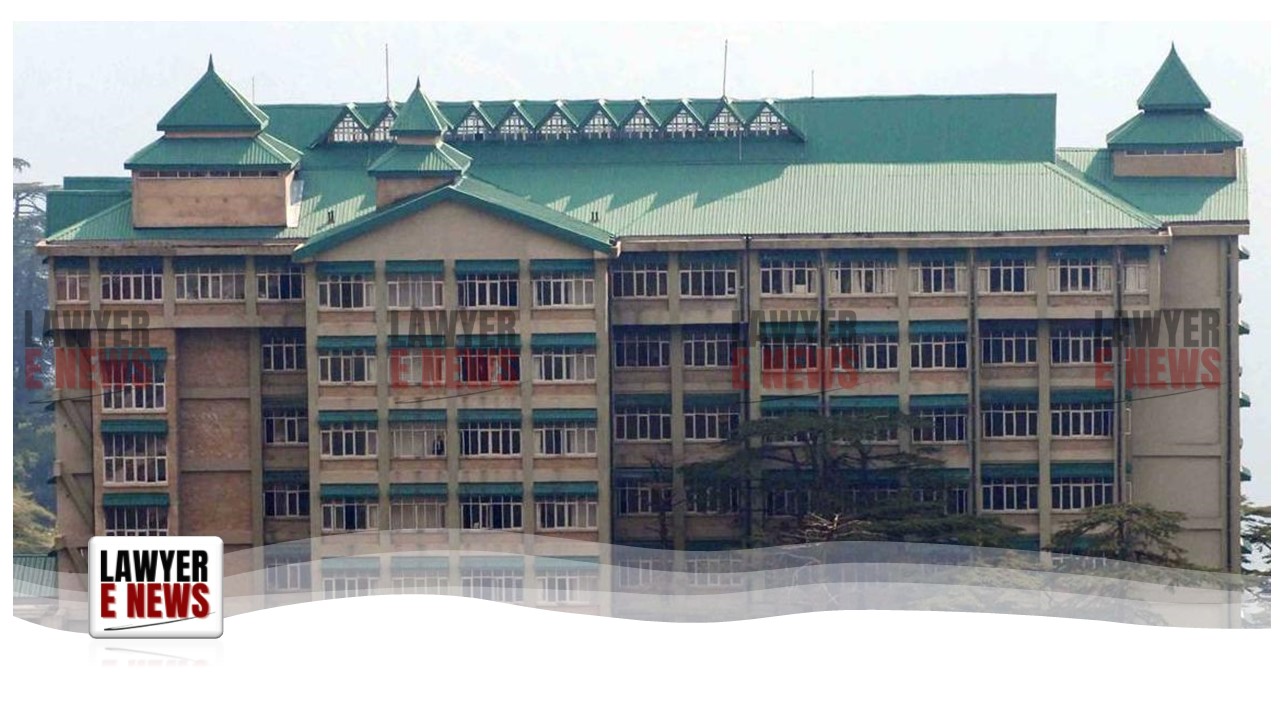-
by Admin
15 February 2026 5:35 AM



Himachal Pradesh High Court in M/S Synergy Technologies v. M/S Alvium Life Sciences & Others (CMPMO No. 189 of 2024) ruled that the rejection of a plaint under Order VII Rule 11(e) of the Code of Civil Procedure, 1908 (CPC) due to failure to file the plaint in duplicate is procedural and not automatic. The court held that plaintiffs must be given an opportunity to rectify such procedural defects before any rejection of the plaint is ordered.
In the present case, M/S Alvium Life Sciences, as the plaintiff, filed a civil suit before the trial court but failed to submit the plaint in duplicate as required by law under Order VII Rule 11(e), CPC. The petitioner, M/S Synergy Technologies, sought the rejection of the plaint on this procedural ground. The trial court, however, dismissed the application and provided the plaintiff with an opportunity to rectify the defect by filing the duplicate plaint.
The petitioner then challenged this decision before the High Court, contending that the trial court should have rejected the plaint outright due to non-compliance with Order VII Rule 11(e).
Opportunity to Rectify Procedural Defects, Not Automatic Rejection
The core legal question was whether the failure to file a plaint in duplicate should result in its automatic rejection under Order VII Rule 11(e), or whether the court should allow the plaintiff an opportunity to cure the defect.
Justice Bipin Chander Negi, while referring to the Supreme Court's decision in Salem Advocate Bar Association, T.N. v. Union of India, (2003) 1 SCC 49, clarified that procedural defects like failure to file a plaint in duplicate do not mandate automatic rejection. The court held:
"Rejection contemplated in Order VII Rule 11(e) being procedural in nature is not automatic, and as per the Apex Court, an opportunity needs to be given for rectifying the defect. However, if after giving an opportunity, the same is not rectified, the court will have the liberty to reject the plaint." [Para 5]
The High Court referred to the Salem Advocate Bar Association case, which held that courts should not automatically reject a plaint for procedural defects such as non-filing in duplicate. Instead, the court should provide the plaintiff an opportunity to remedy the defect. Only if the plaintiff fails to rectify the issue within the stipulated time can the court proceed to reject the plaint.
In this case, the trial court had granted the plaintiff an opportunity to file the plaint in duplicate, and the High Court found no fault with this approach. The court concluded that:
"The trial court rightly granted an opportunity to the plaintiff to file the duplicate plaint, and there is no infirmity in the impugned order. However, if the plaintiff fails to comply, the trial court will be free to proceed as per law." [Paras 6-7]
The Himachal Pradesh High Court dismissed the petition, upholding the trial court's order that granted the plaintiff the opportunity to file the plaint in duplicate. The court reiterated that procedural defects should not automatically result in rejection, and the courts must offer plaintiffs a chance to rectify them.
Date of Decision: October 18, 2024
